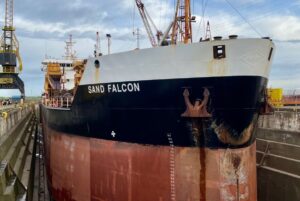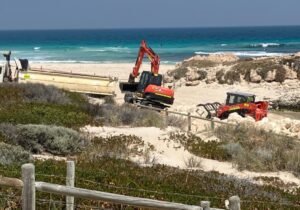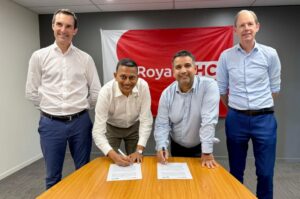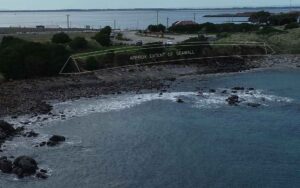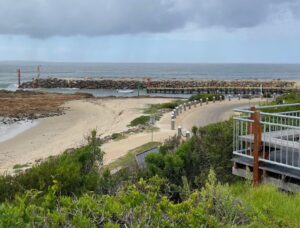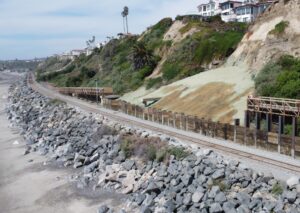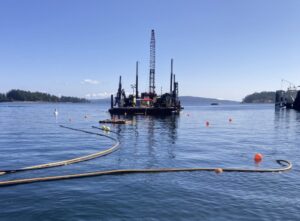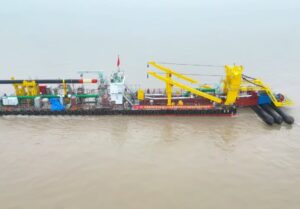UMI: Chatham Rock Phosphate Takes Centre Stage (China)
Chatham Rock Phosphate is centre stage at the Underwater Mining Institute conference being held at Shanghai this week.
CRP principal scientist Dr Robin Falconer updated the conference on recent corporate milestones and presented the findings of the four cruises conducted in the Chatham Rise licence area, east of New Zealand over the 2011-12 summer at a cost of $7 million.
The cruises, on the Dorado Discovery, used the latest technology to closely analyse the resource, already well defined using older technology in the 1970s and 80s.
The scientists demonstrated how modern techniques have been able to assist CRP in developing its mining plan, design its mining system and pinpoint areas of marine life.
The surveys collected:
– Multibeam swath bathymetry data (ship and ROV)
– Sub-bottom profile data
– Side-scan sonar data
– Magnetic anomaly data
– Sea floor samples (grab, box core, vibrocore, ROV)
– Video and still photos of the sea floor
– Geotechnical data (cone penetrometer and jet testing).
Dr Falconer said the main factors influencing the design of mining system and plan were the variations in:
– the water depth and features
– the thickness and composition of the sandy silt
– resource concentrations.
Also critical was designing a mining system that minimised the environmental impact on the sea floor and in the water column.
The other main focus has involved establishing the economics, especially capital and operational expenses, and the make-up and locations of the expected market.
In addition to the CRP presentation, Gert Jan Grundlehner from Royal Boskalis, CRP’s technical partner and cornerstone shareholder, spoke on the mining operations and system design.
Another paper relevant to the CRP project was that by Malcolm Clark of the National Institute of Water & Atmospheric Research who provided a New Zealand perspective on the science requirements for managing the environmental effects of seabed mining.
Tom Dettweiler of Odyssey Marine Exploration, which operates the Dorado Discovery, also spoke on the multidisciplinary mineral exploration services provided by the vessel when undertaking four cruises for Chatham Rock Phosphate earlier this year.
It is the third year CRP – one of the most advanced marine mining projects in the world – has updated the marine mining industry on progress.
CRP submitted its mining licence application with New Zealand Petroleum and Minerals in late September to extract rock phosphate nodules from the seabed in 400 metre waters. It plans to apply for a marine consent in the second quarter of 2013, as soon as the regulations for the EEZ legislation are complete.
Establishment of a rock phosphate industry in New Zealand territorial waters has a significant number of economic, environmental and market benefits.
[mappress]
Press Release, October 18, 2012


